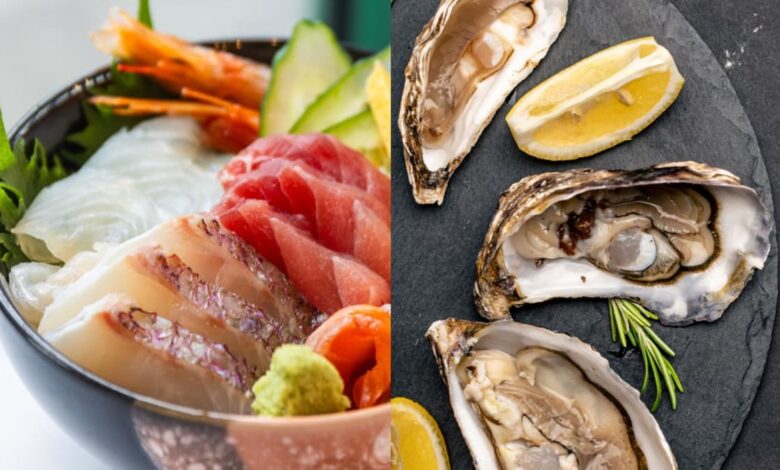How to prevent food poisoning: Raw shellfish, sashimi, runny eggs, fried rice

Not everyone enjoys their morning eggs the way we do. It was evident in the comments on a US-based vlogger’s post about the classic Singaporean breakfast of kaya toast and soft-boiled eggs. “Explosive diarrhoea”, “disgusting” and “snotty” were some of the words used by international netizens to describe the eggs.
They do have a point in that salmonella is a very real problem in eggs and is a “leading cause of food-borne illnesses worldwide”, according to the SFA. This is why eggs in other countries are cooked thoroughly before eating.
In order for you to enjoy onsen and poached eggs with ease of mind, the SFA ensures that imported eggs come from “approved sources in accredited countries and regions that meet Singapore’s food safety and animal health standards”.
Local egg farms must also demonstrate “good farm management practices and strong biosecurity measures” to prevent salmonella contamination, said the SFA, which means removing soiled and/or cracked eggs, and regularly testing their hens for salmonella. “If salmonella is detected through our tests, the farm will be suspended until the contamination issue is rectified.”
What you can do: Those stringent requirements make it “relatively safe to eat raw or lightly cooked eggs in Singapore”, said the SFA. But there is always a risk with raw food, so if you are pregnant, immunocompromised, very young or elderly, it is best to avoid them.
If you must include raw or lightly cooked eggs in food such as tiramisu, mayonnaise and hollandaise sauce, use pasteurised eggs that have been heat treated to eliminate bacteria. Otherwise, prepare or order eggs that are cooked until the whites and yolks are firm; runny egg whites or yolks may still contain bacteria, said the SFA.
To safeguard yourself further, finish up your eggs as soon as they are cooked. If there are leftovers, refrigerate the eggs or any dish containing eggs promptly (below 4 degrees Celsius) to avoid bacterial growth.
LEFTOVER RICE

